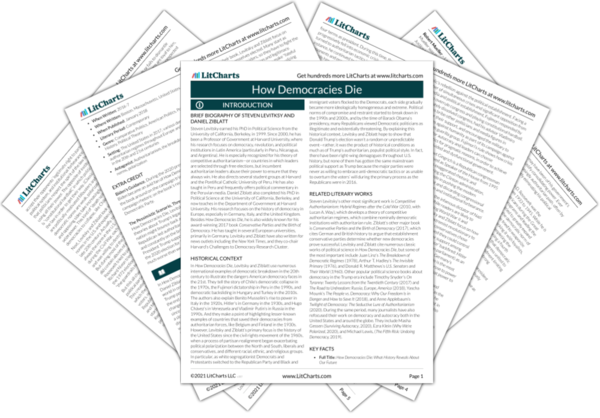The breakdown of democracy in Chile again started when polarization gradually escalated over the course of years, then both sides started to abandon mutual toleration. And again, without mutual toleration, institutional forbearance quickly fell apart, too. Soon, both sides fell into a self-fulfilling prophecy: each saw its opposition as an existential threat, so both tried to eliminate the opposition, thereby turning each party into an
actual existential threat to the other. Eventually, when there was no longer a clear democratic solution to the nation’s woes, it fell into authoritarianism. The key question that Levitsky and Ziblatt must confront in the rest of the book is how nations can put the brakes on this kind of runaway democratic breakdown.


